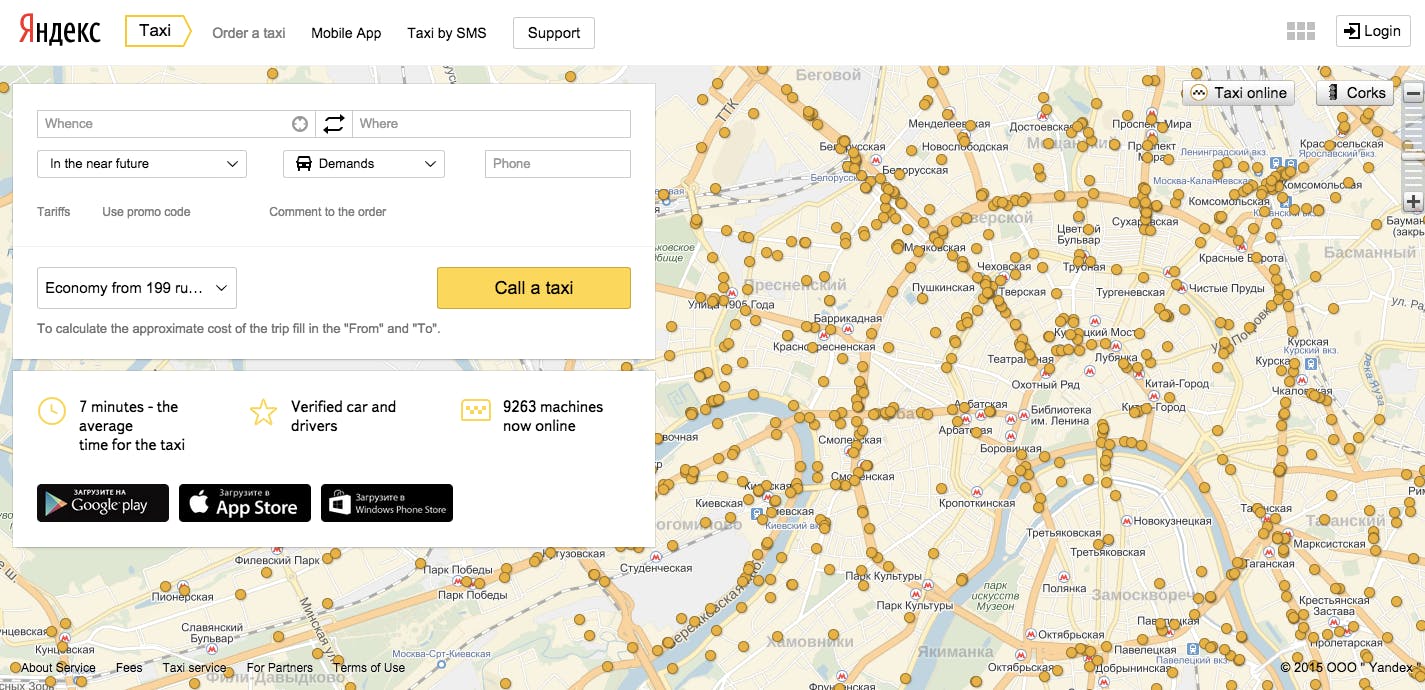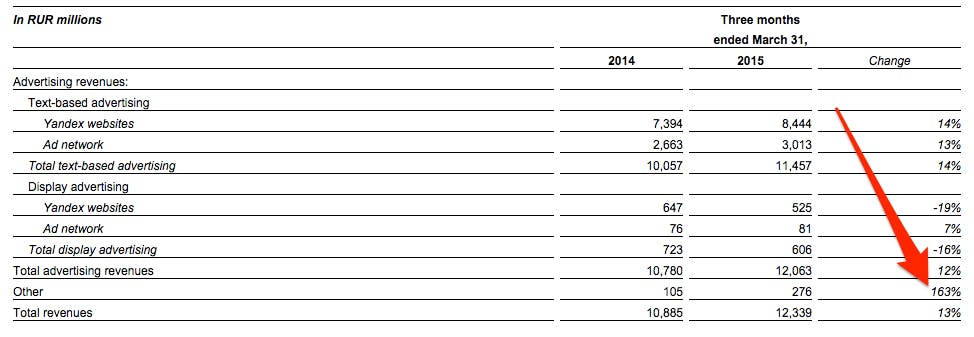Russian tech giant Yandex is trying to unite a disparate group of taxi companies in Moscow and St. Petersburg to out-Uber Uber itself.
The Yandex.Taxi app works like a taxi aggregator—it doesn’t care which company the users hail cabs from, it simply finds the cab that’s closest to the person needing a ride and connects them. Some 200 different cab companies have opted into the service, giving Yandex.Taxi a pool of 10,000 cars connected to the service at any given time. It’s very easy to find a ride.
To most people around the world, Yandex is best known as the Russian version of Google—and not just in the sense that it runs a search engine. Yandex uses technology to solve big problems, also offering an email service, a mapping and navigation system, language translation software for the Web, and so on.
The company developed Yandex.Taxi in 2011 to solve another big problem: an average of 30 minutes’ wait for a cab to show up once you’ve ordered it. Because Yandex’s “fleet” (it only owns the software; the cars still belong to the cab companies) is so widely distributed, Yandex.Taxi has pushed wait times down to five to seven minutes.
Yandex.Taxi works so well at getting passengers into empty cabs that the cabs can charge significantly less for a ride. You can expect to pay about $5 for a 20-minute cab ride if you book it through the service. It’s no wonder that more than 40,000 Russians book rides through Yandex.Taxi every day.
Passenger safety is still paramount, and Yandex.Taxi uses a rating system to incentivize drivers. Those with higher ratings tend to get more bookings, and if a driver passes an optional exam to appraise his or her experience, he or she will get booking alerts 20 to 30 seconds earlier than another driver who is the same distance away from a passenger but didn’t take the exam.
The war of ridesharing services is being fought hard in busy Moscow—Yandex.Taxi competes with services like Uber and Gett, and passengers have a lot of choice when it comes to getting from A to B.
“I use services [like these] every day,” Moscow resident Anastasia Shvetsova told the Daily Dot. “My choice depends on my location and the time of day. If you are somewhere in the suburbs, you have no chance to get an Uber, for example.”
Uber is “pretty useless when you’re not in the center of the city,” said Shvetsova. “This is the advantage [of Yandex]—they have a car for you anytime without dependence on your location or a large number of orders.”
Yandex has just released its financial results for the first quarter of the year. Much like Google, the lion’s share of its revenue comes from advertisements (more than 90 percent), but its “other” category has grown 163 percent.
“The absolute majority of this part is Yandex.Taxi,” said Vladimir Isaev, head of Yandex’s international media relations. “The service’s revenue grew significantly, almost three times during a year.”
The takeaway is clear: Forget allegiances to specific car companies. Yandex.Taxi lets you access all of them at once—and that’s something that not even a Goliath like Uber can offer.
Illustration by Max Fleishman




